Michelin has announced the results of its annual design contest, which tasked participants to create mobility solutions for mega-cities in the year 2035.
This year’s theme for the Michelin Challenge Design, titled “Inspiring Mobility,” challenged participants to design a mobility solution that will evoke a personal connection around joy, trust, security or freedom for users in Berlin, Mumbai, New York, São Paulo or Shanghai in 2035.
The Winners
Winners of the 2019 Michelin Challenge Design, “Inspiring Mobility”
- First place: Jintae Tak, Minseok Choi, Doohee Lee and Joonyong Lee of Seoul, South Korea, for design entry “Depot.”
- Second place: Robert Crick of London, United Kingdom, for design entry “Renault Fold.”
- Third place: Junghyun Kim and Hanum Jeong of Seoul, South Korea,for design entry “Volvo Intersection.”
The three winning designs and 12 finalists were chosen by the jury from more than 1,500 entrants representing 71 countries. In the past 19 years, Michelin Challenge Design has received more than 14,000 entries from 134 countries.
Above: the 2nd winning project – the Renault Fold Concept
Representatives from the first-, second- and third-place winners are invited as guests at the “Movin’On Summit,” the premier global sustainable mobility event held in Montreal. The winners and their designs will be recognized during a private reception and awards ceremony at Movin’On. Winners will also participate in a private portfolio review with members of the jury.
Above: the 3rd winning entry – the Volvo Intersection Concept
1st Place – Depot Concept
By Jintae Tak, Minseok Choi, Doohee Lee, Joonyong Lee (Seoul, South Korea – Kookmin University)
Project Supervisor Professor: Inho Song (Vice Dean of Kookmin University College of Design)
According to the design team, future megacities will turn into people-oriented communities where citizens will play a bigger role than ever.
However, since individual space outside home cannot be met in dreary megacities, there will be a need for ‘freedom of space’; “freedom to create and possess an individual space in the moment they need.”
This in combination with the spread of autonomous driving technology will change the aspect of some elements of a city, for instance, roads and parking spaces.
The Depot project was conceived for the Volkswagen brand and the future Berlin evnironment.
2nd Place – Renault Fold Concept
By Robert Crick (London, UK – Royal College of Art)
Like the first winner, the runner-up entry also focuses on freedom in Berlin 2035: the concept is linked to the need for personal space and exercising creativity.
As the designer explains, “I have aimed to address this issue by designing a vehicle that gives back these freedoms. With the focus on reclaiming personal space.”
“My concept aims to give users the experience of being in a large spacious chauffeured vehicle but in the package of a tiny electric city car. The overall aesthetic of the vehicle will aim to convey individual freedom through the expression of creative identity.”
3rd Place – Volvo Intersection Concept
By Junghyun Kim, Hanum Jeong (Seoul, South Korea – Korea National University of Arts)
Volvo Intersection is an autonomous vehicle concept focused on relationships between people in the future New York, based on the emotion of joy.
“As technology develops, the connectivity of people’s relationships to electronic devices and the Internet has increased, but the emotions and pleasures that can be gained through actual meeting are gradually disappearing. We have integrated these issues into what can happen in autonomous vehicles.”
“At first, like tinder application, it will connect people randomly. But the Big Data and the interests and personality that you fill out will be make you to be connected with the person who could create intersection with you.”
“You and your companion will have a meeting in an autonomous car with a modified interior that suit to a intersection. Volvo Intersection will be able to give you the joy that comes from these meeting and activities.”
The Finalists (gallery coming soon)
Winners and Finalists included designers and teams from China, Colombia, Germany, India, Italy, South Korea, the United Kingdom and the United States.
Finalists of the 2019 Michelin Challenge Design (in alphabetical order):
- Jung-Taek Cho of Gyeonggi-do, South Korea, for design entry “Starbucks Square.”
- Mohammed Fahd of Calicut, India, for design entry “SIEMENS Air Rescue Vehicle.”
- Komal G. and Amogh Barakol of Bangalore, India; and Cuili Yan of Sichuan, China, for design entry “AirSP.”
- Siavash Jafari Jozani of Novato, California, United States, for design entry “WAYMO-FLOW.”
- Simon Kafmann of Caldaro, Italy, for design entry “Escape.”
- Moritz Kirschhoff of Hannover, Germany, for design entry “Urban Islands.”
- Miguel Angel Garcia Londono of Medellin, Colombia, for design entry “NIO EXT Extended Mobility.”
- Oliver May of Duesseldorf, Germany, for design entry “Lynx.”
- Jay Morris of Yateley, Hampshire, United Kingdom, for design entry “NYC Ease.”
- Hyojun Shin, Seonghwan Hong and Hyungtaek Lee of Seoul, South Korea, for design entry “Mercedes Benz 800 Pullman.”
- Aditya Arun Surti of Pune, Maharashtra, India, for design entry “Renault TRIO.”
- Sebastian Weigand of Gemünden am Main, Germany, for design entry “Volkswagen CIT.E.”
In addition, to promote the importance of sketches in the ideation process of mobility design, the jury and program managers have created a new recognition for design sketch. This year, Alberic Chevallier of Nantes, France, was chosen for the design entry “Breathe.”
About Michelin Challenge Design
Created by Michelin in 2001 to encourage and recognize the global design community, Michelin Challenge Design has become one of the most prestigious design competitions, thanks in part to its jury members, who are often the advanced design leaders for major automakers.
The Michelin Challenge Design Jury:
- Stewart Reed, chair, Transportation Design Department, Art Center College of Design, consultant and jury chairman, Michelin Challenge Design
- Chris Chapman, chief designer, Hyundai Design North America
- Dave Marek, Acura global creative director, Honda R&D Americas, Inc.
- Craig Metros, design director, North American Truck, S.U.V. & Commercial, Ford Motor Company
- Damien Michelin, honorary juror, Michelin North America
- Louise Pelletier, director, Centre de Design, UQAM
- Richard Plavetich, general manager, design business, Nissan Design America
- Thomas Sycha, design manager, BMW Group Design, Europe
- Freeman Thomas, former global advanced design director, Ford Motor Company
Official Statements
“The discussion that we are hearing in the mobility sector is primarily around technology. We wanted to use Michelin Challenge Design as a catalyst —a way to get to the root emotion and core question that we want that technology to answer. That is a very underserved part of the mobility discussion,” said Ben Ebel, lead user experience designer, Michelin North America, and chairman of Michelin Challenge Design.
“We’ve forgotten about the journey,” Ebel said. “Whenever we talk about mobility, it’s all about efficiency and movement. Whether it be people or boxes. In fact, a lot of multimodal systems don’t differentiate between these two. What we are seeing here, in these entries, is a different vision that forces you to humanize the experience.”
“One of the most exciting things about Challenge Design is that we get entries from all over the world, so it gives us a very unique lens into different cultures, places and geographies. The solutions presented in this program approached the mobility and transportaiton environment through the lens of what makes it a human experience, with focus on freedom, trust, security and especially joy,” said Stewart Reed, Art Center College of Design in California and Michelin Challenge Design jury chairman.
(Source: Michelin Challenge Design)

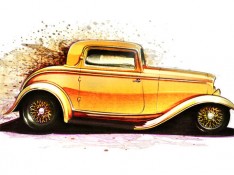
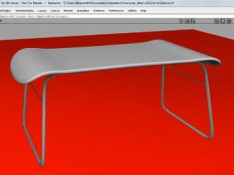
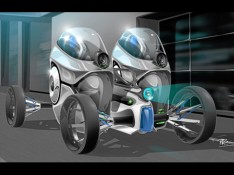
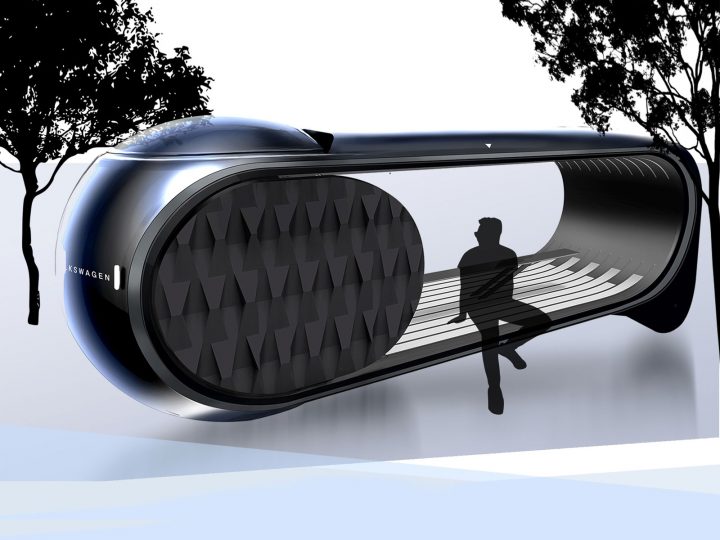
 share on Buffer
share on Buffer




















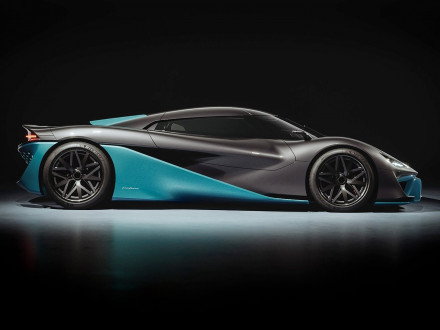
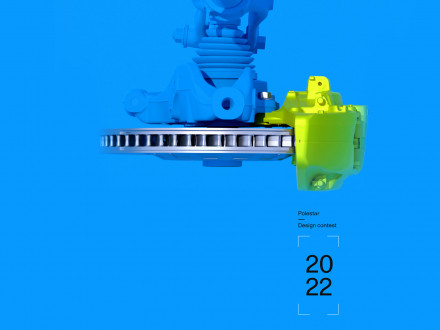
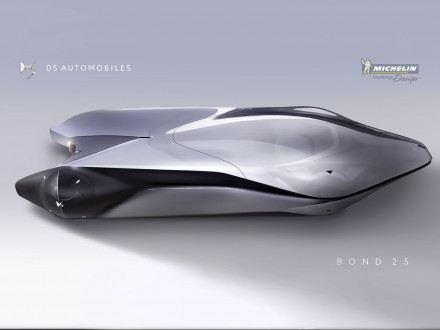









Comments